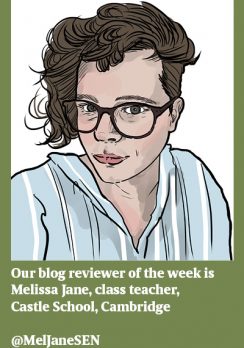Professional trust, the experience of exclusion, making communication inclusive and that guidance are Melissa Jane’s top picks of this week’s education topics
Rose-tinted toxicity: professional unity in unprecedented times
@ShuaibKhan26
Last weekend marked World Mental Health Awareness Day, which can often be an occasion for brands and institutions to talk about looking after your mental health by recommending cups of tea and warm bubble baths. But in education as everywhere else, the solution to widespread mental health problems goes far beyond that – it must be structural, not just individual.
One of the things I love most about my job is the autonomy and trust placed in me as a teacher. In my school, there is an understanding that we all do things slightly differently, in a way that’s tailored to our students, and reflective of our own training, experiences, philosophies and personalities. We’re far from the only school with this approach, but some have responded to the “new Covid normal” by rethinking their priorities and practices and travelling in the opposite direction, enforcing increasingly rigid control of their students and staff of a type that’s altogether too common.
Here, Shuaib Khan sums up how teachers suffer under a “lack of professional trust”, characterised by “continuous and sustained monitoring” and how it ultimately leads to anxiety and mental health crises. Khan refuses to place blame on teachers for failing to manage their own mental health, and instead focuses on practices and cultures that need to change, including political attitudes and structural problems. Tea and bubble baths aren’t going to cut it.
Why I’m taking legal action against the government’s new school guidelines
@mcg1981
As extensively reported over the past fortnight, at the end of September the Department for Education released new guidelines on curriculum content for newly mandatory Sex and Relationships Education. Among other controversies, the guidance stated that schools cannot use materials or book speakers from organisations that promote “divisive” or “victim” narratives, or have “extreme political stances” including, for example, opposing capitalism.
In this blog for the Runnymede Trust, educator Marsha Garratt outlines how the guidance could affect her work in schools, limiting the topics she can discuss relating to struggles for racial justice. As we approach the mid-point of Black History Month, it is concerning to see black educators feeling restricted in the histories they can share. As Marsha says, “We cannot bring change if we do not know or understand what needs changing.”
@SayWitYourChest
I was moved to read this account from an anonymous young man about his experience of repeated fixed-term and permanent exclusions throughout his time in education, beginning in year 5. The blog makes painfully clear that repeated exclusion did not help the young writer to change his behaviour, or address its underlying causes. Instead, it caused more and more disengagement, ultimately resulting in the writer’s placement in a pupil referral unit (PRU). In his words, “I’ve wasted a lot of time and it is frustrating.”
How I Do It: Building and Using Language Kits
@prAACticalAAC
As we settle into a very unusual academic year, in which communication will be more important than ever, it’s important to remember the huge diversity of ways in which our students express themselves.
October is International AAC Awareness Month – that’s Alternative and Augmented Communication, meaning any kind of communication method a person uses instead of, or alongside, speech. Stephen Hawking’s voice-output communication aid is a familiar example, but AAC can be much more low-tech too – a grid of symbols, a sign language system, or a whiteboard and pen. It’s a huge part of what I do on a daily basis. I couldn’t do my job without the wisdom of speech therapists, both directly through in-school consultation and indirectly through the wealth of generously shared resources online through blogs and social media.
Carole Zangari’s is one such post – a useful example of how opportunities for communication can be embedded across the curriculum by making up themed “language kits” containing resources for play and communication about a topic. Making sure a student’s iPad is charged is not enough – whether it’s astrophysics or teddy bears, we need to provide exciting things for them to talk about.













Your thoughts